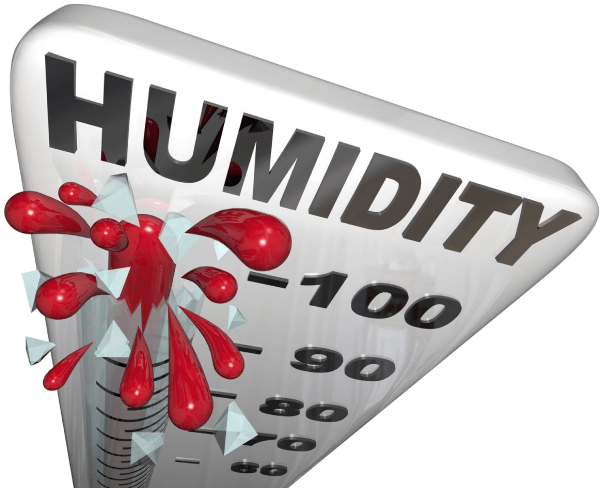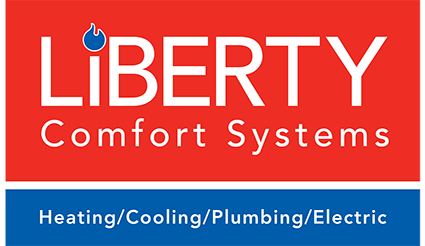
When your air conditioner runs, its main effect is simply cooling your air. However, air conditioner units also end up altering humidity levels inside your home. Since air conditioners handle humidity, the moisture levels in your house can affect your air conditioner’s ability to run. Here is what you need to know about the effect of humidity on your air conditioner.
Your AC Will Remove Some Humidity From the Air
To understand humidity’s effect on your air conditioner, it is helpful to learn how your air conditioner handles humidity. Every air conditioner is designed to automatically remove humidity from the air. As the air cools, water vapor in the air condenses into tiny liquid droplets. These fall out of the air into a drain pan, and then they are drained away from the air conditioning system. Any time air inside your home cycles through your air conditioner unit, it will come out with less humidity than it began with.
In most cases, this is a good thing. It means that during muggy, high-humidity summer days, your air conditioner will help reduce the feeling of stickiness or clamminess. However, if your climate is already fairly dry, the effect on your air conditioner will be less pleasant. On low-humidity days, your air-conditioned air can end up feeling harsh and dry. If your home is regularly hot and dry, you may end up needing a humidifier to help adjust indoor moisture levels.
You Might Need to Set Your Thermostat Lower in High Humidity
The biggest effect of humidity on your AC is its ability to change the way the air feels. This happens because humidity blocks your own body’s cooling process. The body is always cooling itself by evaporating moisture from the skin. When the air is already saturated with moisture, less air can evaporate. Essentially, you end up feeling far hotter when humidity rises. Ultimately, the same temperature can feel wildly different at various humidity levels.
On high-humidity days, your usual air conditioner setting might not work well for you. You may end up feeling hot even though your air conditioner is technically working fine. Some people find that they need to set their thermostat a little lower to get the same level of comfort. This means that the air conditioner runs longer and uses up more power. It may have a slightly higher chance of breaking down, and it might need more maintenance. However, the good news is that this will remove even more humidity from the air, helping your home feel more comfortable overall.
High Humidity Does Not Necessarily Mean Your Machine Works Harder
Since high humidity means the air feels warmer, many people assume that their air conditioner has to work harder to deal with the humidity. Technically, this is not true. If you set your air conditioner to the same temperature you typically do, you will use roughly the same amount of power.
This happens because most air conditioners have single-speed motors. They are either on or off, so your air conditioner can never work harder. When the temperature rises, your AC will not run faster or suddenly start sucking up a bunch of extra electricity.
However, it might end up running slightly longer to reach your preferred temperature. This happens because extra-high levels of humidity may have a minor effect on your AC’s ability to cool. Without getting into all the technical details, the dew point in your home will affect your cooling coil’s ability to take certain types of heat out of the air.
Theoretically, this means that your air conditioner might run ever so slightly longer to reach a certain temperature. However, in reality, the difference is negligible. At most, it might just mean that your air conditioner runs a few minutes longer on days with extremely high humidity.
Oversized ACs May Struggle With Humidity
For the average air conditioner, high humidity usually just means it needs to run a little while longer. However, if the air conditioner in your home is not properly sized, you might run into some problems that the typical homeowner does not face. This occurs because an air conditioner that is too large for your home will most likely deal with a problem called short-cycling.
Short-cycling happens when an air conditioner unit runs for short periods of time, blasting just enough cool air to trigger the thermostat and then shutting off. Since the air conditioner does not run for more than a couple of minutes, it does not allow air to fully circulate throughout your house. The pockets of hot air end up heating up the house, and then the air conditioner clicks back on a few minutes later. If you notice your air conditioner constantly turning on for less than 15 minutes, it is probably oversized.
When your home is filled with humidity, short-cycling becomes a major problem. Even very large air conditioners still just remove humidity at the same slow, steady rate. Since the oversized air conditioner does not run for long periods of time, all the air in your home is not traveling through the system for dehumidification. This means that houses with oversized air conditioners end up with excessive amounts of humidity that can never be removed. If your air conditioner is oversized and you live in a humid climate, your only solution may be installing a dehumidifier or entirely replacing your air conditioner.
High Humidity May Mean Your Machine Needs More Maintenance
High humidity does not technically affect your air conditioner’s ability to run. However, months of extra humidity can subtly impact your machine. The problem is that excess humidity means more mold and algae growth. If you get mold spores inside of your air conditioner, excess humidity can encourage it to flourish. This can harm your indoor air quality and potentially result in health problems for you. It also has the potential to damage your equipment.
One major problem is the risk of drain line clogs. Mold can grow into clumps that keep your drain line from properly removing condensate. This causes water to back up. If you’re lucky and have a failsafe involved, your air conditioner will just stop running. If you don’t have any safety measures, the backed-up water may leak and damage your home.
Mold can also grow on your coils, reducing overall cooling efficiency. To keep this from happening, you may need to plan a little extra maintenance during high-humidity months. Extra cleaning can remove any mold before it damages your health or your machine.
If you want to learn more about your air conditioner, talk to Liberty Comfort Systems. Our team is always happy to answer your questions, and we can help you with a wide range of air conditioner repair, installation, and maintenance tasks. We also provide heating services, indoor air quality solutions, duct cleaning, electrical services, and basement finishing. As one of Anoka’s most trusted HVAC companies, we focus on providing stellar customer service. Learn more about how we can help you by giving us a call today.

